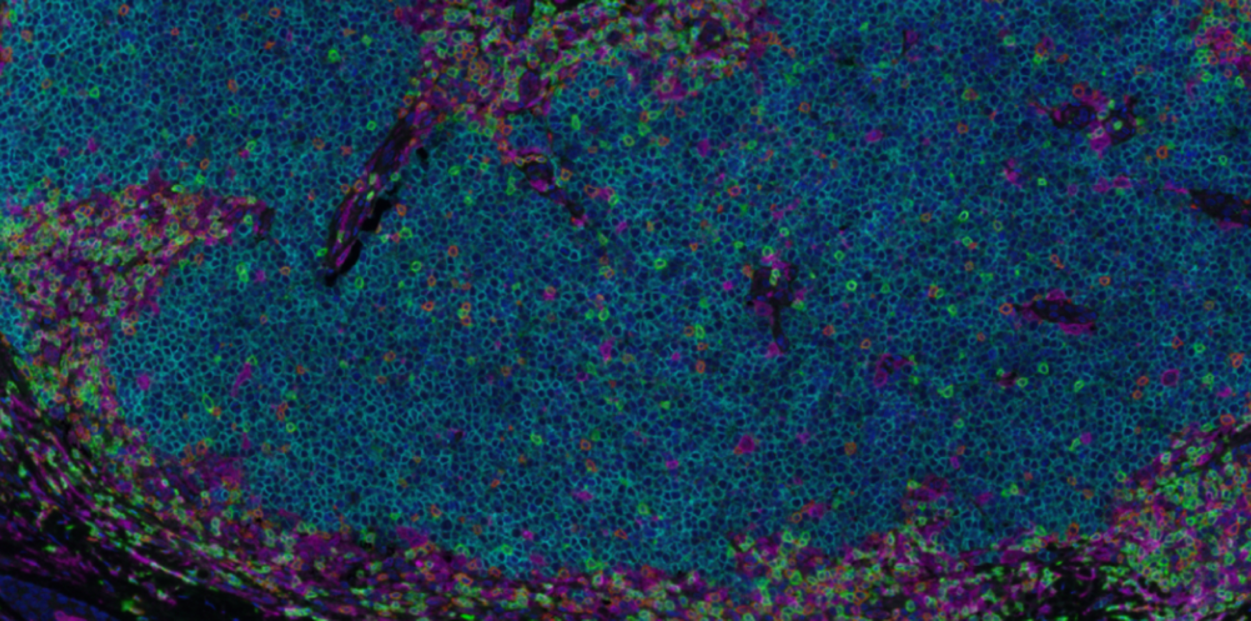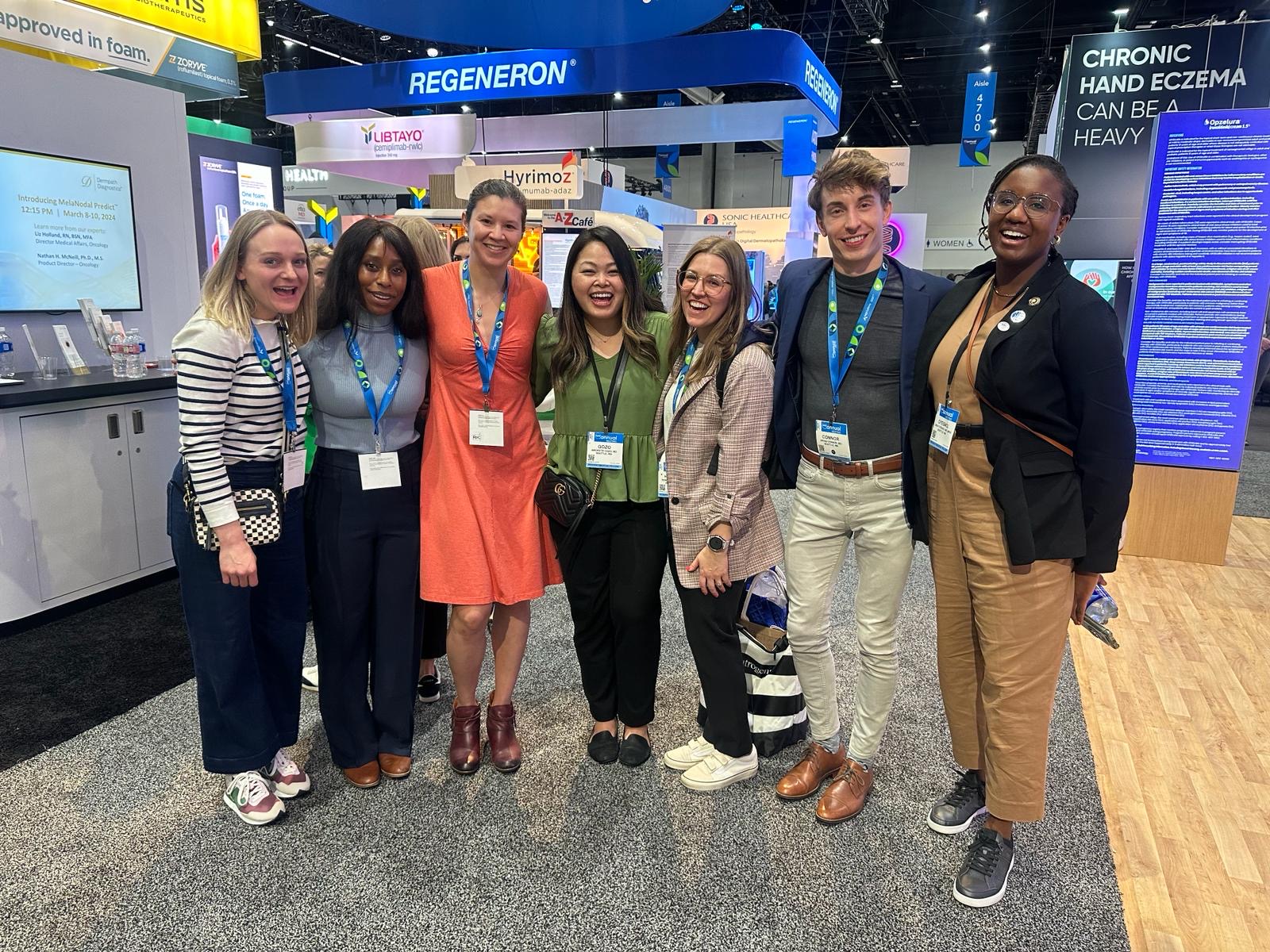
overview
The UW Dermatology Residency Program trains selected candidates using a comprehensive curriculum that encompasses clinical practice, didactic learning, investigation, and professional development. The overall goal of this curriculum is to provide a foundation of specialty-specific scientific and medical knowledge and an interactive environment for supervised patient care with graded responsibility.
Rotation information
A typical Dermatology Residency rotation schedule includes:
First Year (PGY-2)
| Rotation Site | Length |
|---|---|
|
Harborview Medical Center |
3-4 months |
|
University of Washington Dermatology Roosevelt Clinic Primary derm outpatient clinic Includes derm rheum, nail disorders, complex medical derm and CTCL, pigmented lesions |
3-4 months |
|
Fred Hutchinson Cancer Center Dermatologic oncology, Merkel cell carcinoma, Vectra imaging technology, procedures |
2-4 weeks |
|
Veterans Affairs Puget Sound Healthcare Systems Inpatient and outpatient services, procedures, teledermatology |
3-4 months |
|
Seattle Children’s Hospital Pediatric outpatient and inpatient services, lasers procedures, vascular anomalies |
1-2 months |
|
University of Washington Medical Center Inpatient Consult Service |
1 month |
|
Dermatopathology |
2 weeks |
|
All rotations include a half day of protected time for administrative duties, as well as two half-days of protected didactic and academic time |
|
Second Year (PGY-3)
| Rotation Site | Length |
|---|---|
|
Harborview Medical Center |
3-4 months |
|
University of Washington Dermatology Roosevelt Clinic Primary derm outpatient clinic Includes derm rheum, complex medical derm, phototherapy, contact dermatology |
3-4 months |
|
Fred Hutchinson Cancer Center Dermatologic oncology, Merkel cell carcinoma, Vectra imaging technology, procedures |
2-4 weeks |
|
Veterans Affairs Puget Sound Healthcare Systems Outpatient services, procedures, teledermatology |
3-4 months |
|
Seattle Children’s Hospital Pediatric inpatient & outpatient services, lasers procedures, vascular anomalies |
1-2 months |
|
University of Washington Medical Center Inpatient Consult Service |
1 month |
|
Dermatologic Surgery |
1 month |
|
Dermatopathology |
1 month |
|
All rotations include a half day of protected time for administrative duties, as well as two half-days of protected didactic and academic time |
|
Third Year (PGY-4)
| Rotation Site | Length |
|---|---|
|
Harborview Medical Center |
3-4 months |
|
University of Washington Dermatology Roosevelt Clinic Primary derm outpatient clinic Includes derm rheum, complex medical derm, phototherapy, contact dermatology |
3-4 months |
|
Veterans Affairs Puget Sound Healthcare Systems Outpatient services, procedures, teledermatology |
3-4 months |
|
Seattle Children’s Hospital Pediatric outpatient services, lasers procedures, vascular anomalies |
1-2 months |
|
University of Washington Medical Center Inpatient Consult Service |
1 month |
|
Dermatologic Surgery |
4-6 weeks |
|
Dermatopathology |
1 month |
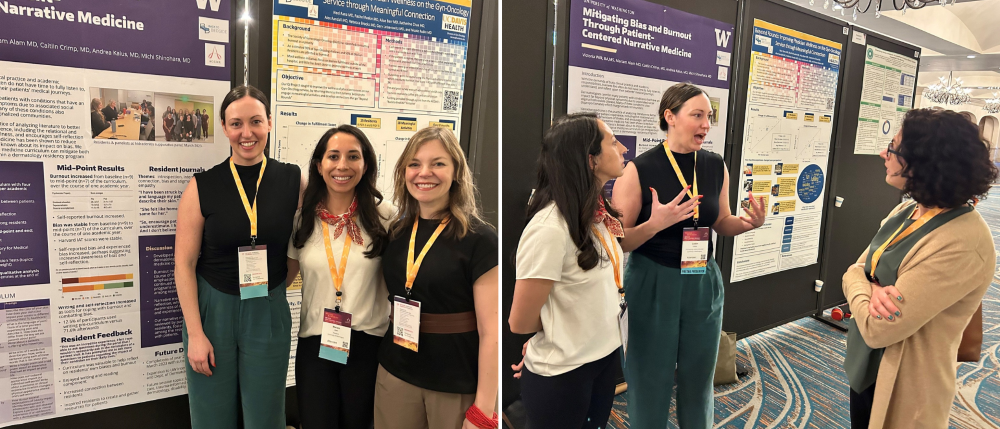
Didactics & Non-Clinical Learning
Didactic Curriculum: Basic Science & Clinical Dermatology
Faculty-led Didactic Sessions are weekly sessions in which faculty presents a didactic and often interactive topic, either within his/her academic expertise, or relevant to the residents’ current textbook reading. A variety of formats are used.
Board Review/Textbook Review is held weekly. Residents interactively review selected chapters from Wolverton’s Comprehensive Dermatologic Drug Therapy, Spitz’ Genodermatoses, Andrew’s Diseases of the Skin, and Bolognia’s Dermatology. Each week, individual residents create or update an existing quiz to assess residents’ synthesis from the assigned texts readings.
Grand Rounds (GR) is held twice monthly throughout the year and is attended by Department faculty, staff, residents, students and invited guests. Speakers for GR include residents, and department and outside of department faculty. Residents are required to present at Grand Rounds during their residency. In the 3rd year, residents often choose a topic within professionalism, often a Morbidity & Mortality issue, to present at GR.
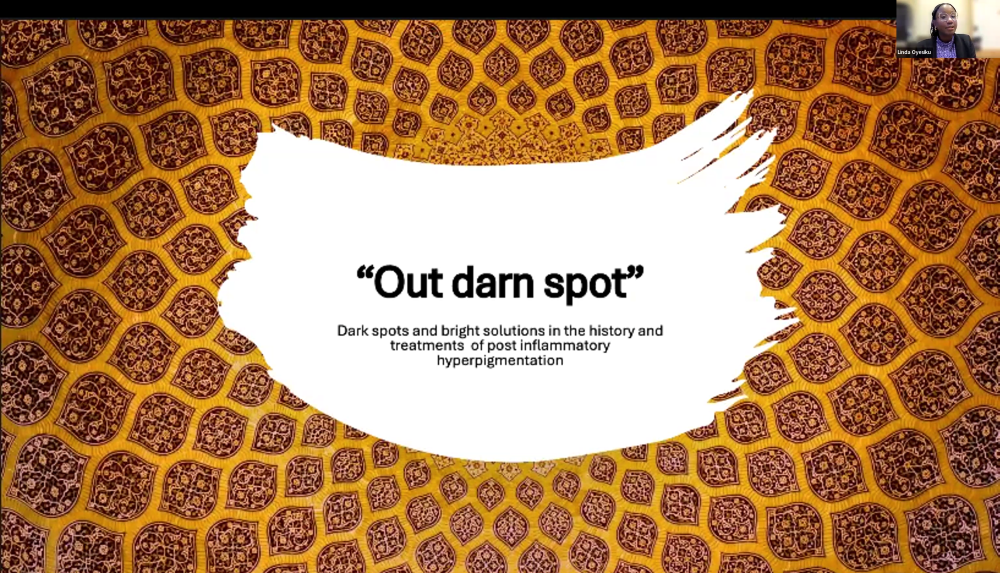
Patient Care/Morphology Conference is held 2 or 3 times monthly alternately with GR and is attended by Department faculty, residents, and students. Medically complex or highly educational patients are invited to come to the UW Roosevelt Dermatology Center for examination by all attendees. 1st and sometimes 2nd year residents are asked to describe the clinical exam and generate a differential diagnosis based only on the physical exam. Feedback is given on the residents’ descriptions. Then an open exchange of ideas occurs for management next steps.
Journal Club occurs 1-2 times per month, and reviews articles covering topics in basic science, professionalism, clinical care, and healthcare equity.
Interhospital Image Case Review/Teledermatology (a.k.a. Morning Report). Digital images from patients seen at the different rotation sites are presented by the residents and reviewed with the residency group to extend the experience from Patient Care/Morphology Conference. Occasional teledermatology cases from regional and international networks are presented to widen the scope of exposure to skin disease outside of the usual sites of training.
Dermatopathology didactics occur as part of weekly Dermatopathology Conferences (UWMC, HMC, VA). Both interesting cases as well as cases in which further clinicopathologic correlation is needed are reviewed. A formal didactic curriculum also includes: 1.5 hour textbook and glass slide review held weekly at UWMC and conducted by UW Dermatopathology faculty (Dr. Michi Shinohara) and guest faculty, regular unknown slide sessions, and regularly scheduled lectures held throughout the year and attended by pathology residents and dermatology residents.
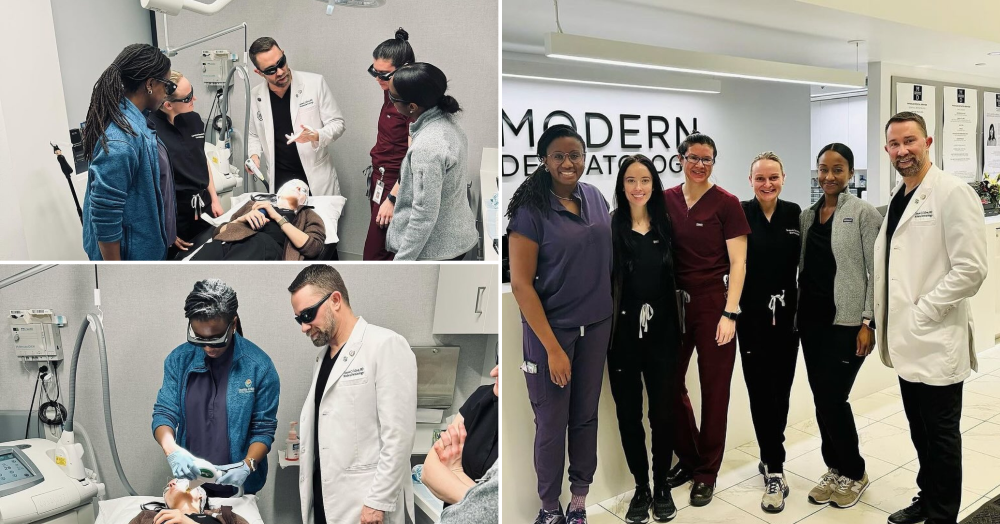
Dermatologic surgery didactics sessions are presented by our UW Derm surgery faculty Dr. Jeremy Kampp, Dr. Divya Seth, or one of the community dermatologic surgeons affiliated with our program on fundamentals of skin surgery provide a systematic review of the major topics in dermatologic surgery.
Quality Improvement Curriculum: Residents participate in a series of QI sessions during their first year, and participate in a QI project during their residency with the aim of impacting clinical practice for the improvement of the patient experience, minimization of medical error, healthcare equity, and/or reducing health care cost.
call frequency
First year residents begin taking after hours call in November, and are finished taking the bulk of their call in October of their 2nd year. They return to do 1 week of after hours call in the August/September of 3rd year. This averages out to be about 10-11 weeks total.
Leadership & Teaching Opportunities
Residents have the opportunity to teach medical students during clinical rotations, and can lead medical student suture sessions, as well as leading small groups during the undergraduate course MEDSCI. Residents also mentor diversity scholarship medical students.
Residents have the opportunity to chair and serve on department committees including Justice, Equity, Diversity and Inclusion (JEDI) Committee, Wellness Committee, and more.
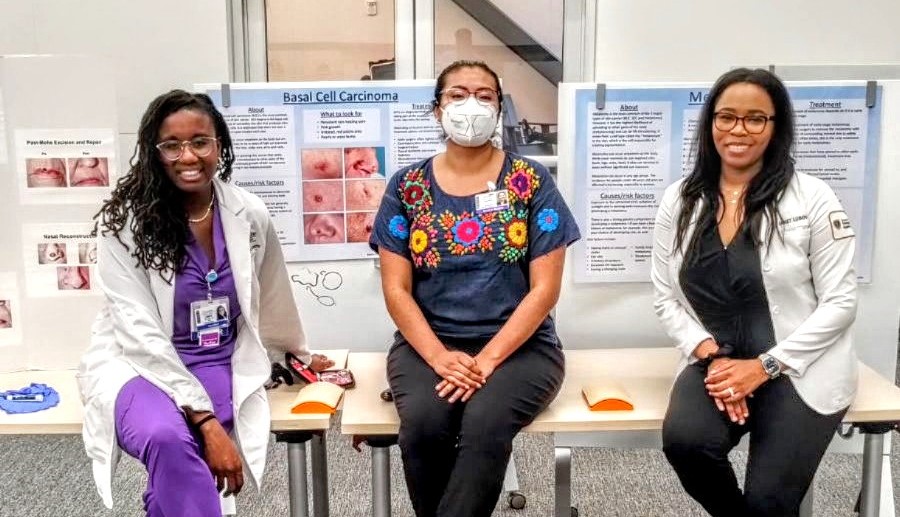
Career & Professional Development
Career panels, talks on contract negotiations, professional development funds, 10 days of paid professional leave days per year for meetings, away rotations, and/or interviews.
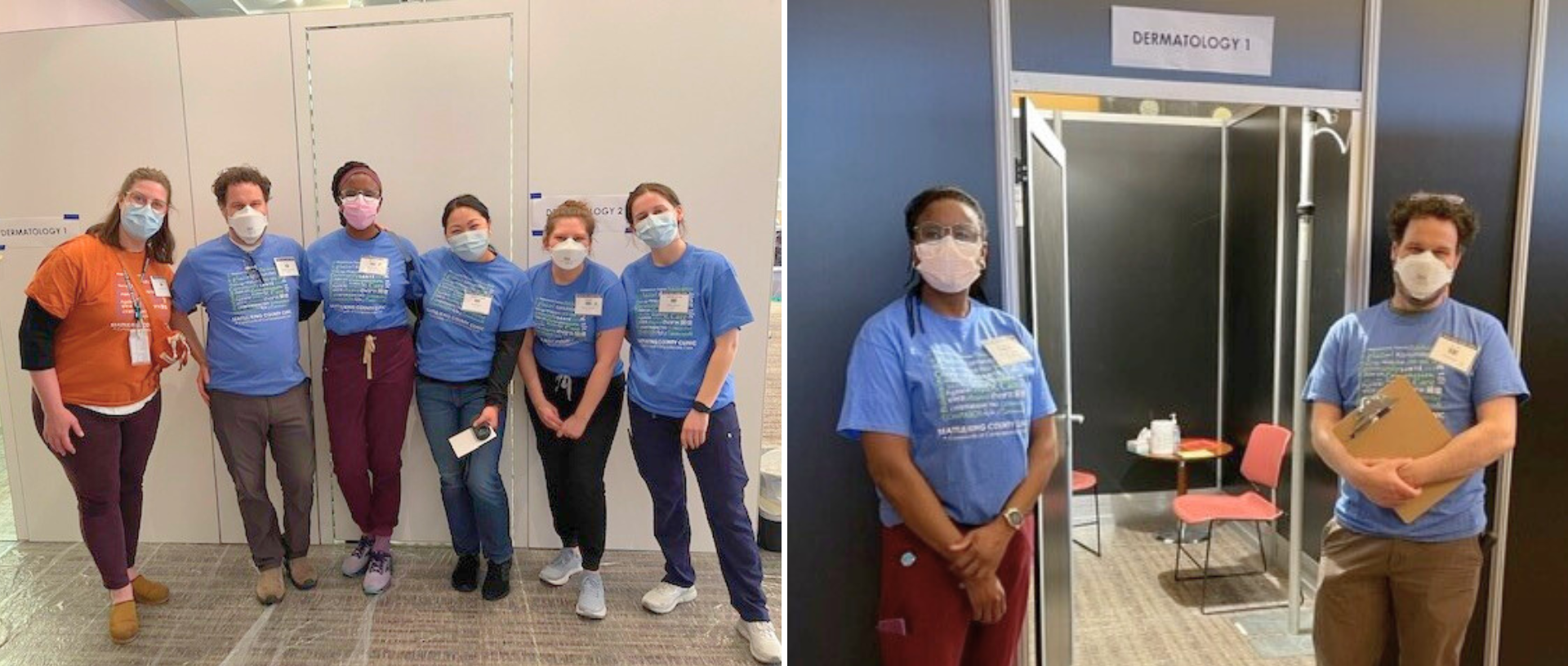
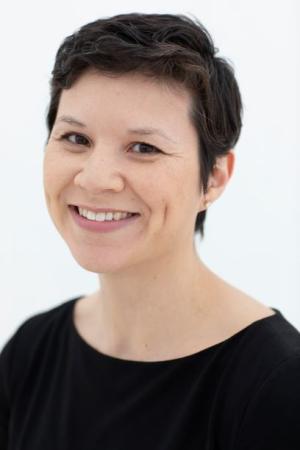
Resident Reflections
“UW Dermatology excels in several arenas. The diversity of medically complex and rare cases that are referred to the UW system from the WWAMI region ensures that we have direct exposure to many 'once in a career' cases as well as practical clinical experience with refractory cases of more common conditions. This is reflected as well in the depth of knowledge and sub specialization of our attendings, both within the UW system and the many community dermatologists engaged in our training. Finally, the joy and camaraderie among my co-residents and attendings means I enjoy going to work and feel supported in every dimension of my training.” —Laura Valaas, MD (she/her), Class of 2024
CONTACT
To reach the UW Dermatology Residency Program, please email dermres@uw.edu, or call 206.685.6120.



